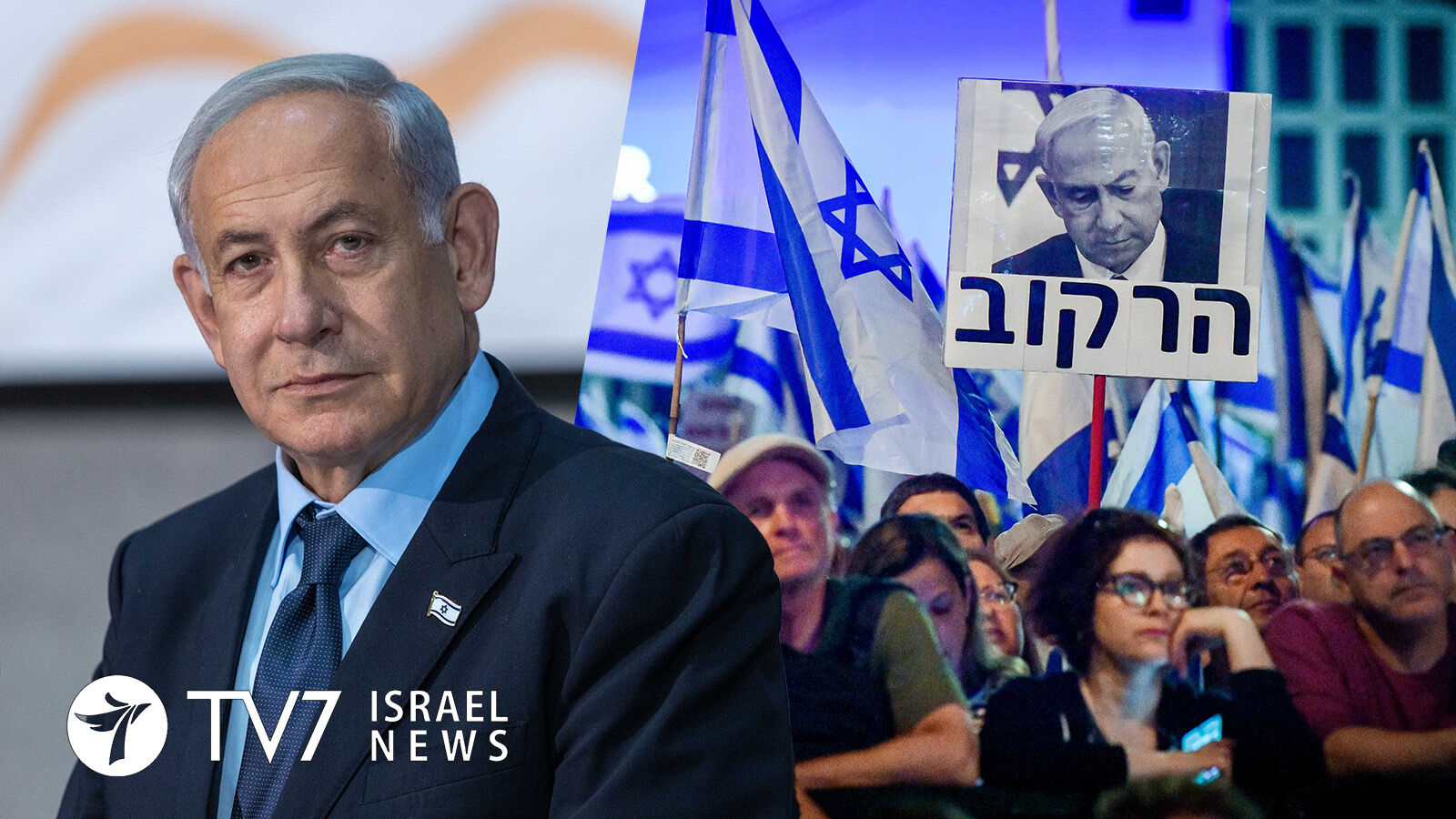The Israeli leader make his appeal to prevent public dissent over his government’s controversial judicial overhaul from disrupting this week’s Memorial and Independence Day commemorations.
By Erin Viner
In an announcement directed an both members of his government and protestors, Prime Minister Benjamin Netanyahu called for calm to be maintained particularly during annual remembrances for slain soldiers and victims of terror attacks.
Memorial Day officially begins at sundown this evening and concludes tomorrow night, when celebration of Israel’s 75th Independence Day will begin after nightfall on Wednesday.
Several bereaved families of fallen soldiers have already announced they would not attend ceremonies at the nation’s military cemeteries if government politicians come.
The centrist leader of the opposition, Yair Lapid, has said he will boycott the transitional Memorial to Independence Day ceremony at the Mount Herzl National Cemetery. “You (the government) have torn Israeli society asunder, and no fake firework show will cover that up,” he wrote on Twitter.
Moshik Aviv, director of the ceremony, said a recording of a rehearsal would be aired should the event be disrupted by members of the audience – who, he added, would be screened for any items that might be used to mount a protest. “We don’t want to engineer perceptions, but we do want to convey our main message, which is that the substance of the ceremony is what is positive and unifying,” he said while speaking to Army Radio.
The nation has been gripped by unprecedented weekly nationwide demonstrations following the 4 January 2023 announcement that the Netanyahu coalition – which took office only days before on 29 December 2022 – of a sweeping “reform of governance” to limit Supreme Court rulings against government moves or Knesset laws, while increasing politicians’ input over nominations to the bench.
Israel’s right-wing 37th government, an alliance between the Premier’s Likud party with several smaller religious and hard-right nationalist factions, asserts it holds the mandate for changes, deemed necessary to curb overreach by activist judges and restore balance between the legislative, executive and judiciary.
The court’s defenders say it plays a vital role in holding the government to account in a country that has no formal constitution, and that the government’s overhaul would weaken the courts, endanger civil liberties and harm the economy. The proposal has drawn fierce condemnation from Opposition Members of Knesset (MKs), legal officials, military reservists and advocacy groups – further broadening already deep political divisions in Israeli society in what has been described as Israel’s worst-ever crisis.
Prime Minister Netanyahu, who is himself on trial on corruption charges which he denies, had dismissed the protests as refusal by leftist adversaries to accept the results of the 1 November’s election which resulted in one of the most right-wing governments in Israel’s history. He has ardently defended the judicial overhaul.
Despite a late-March pause on the legislation by Netanyahu to allow for compromise negotiations, protests have persisted and may possibly overshadow both national ceremonies.
Faced with the prospect of solemn family visits at military cemeteries tomorrow, Netanyahu, whose elder brother Yonatan was killed leading a 1976 rescue of hostages at Entebbe, issued the following video statement.
“Dear citizens of Israel, Brothers and sisters of the bereaved families,
In a few days, we will fix our gaze on the military sections in the cemeteries. Every headstone there tells the story of a life that was cut short.
The unity of silent bereavement in the cemeteries cries out to us at this time. Our loved ones who fell, our loved ones who paid for our revival with their lives, did so for us – and we must stand together for them, united, in order to be worthy of their sacrifice.
And so, a moment before the sacred days that await us, unity is the order of the day.
In recent months, there has been there has been an important debate in our democracy, but at this time, I ask all elected officials, from the right and the left, to put aside the debate, to leave it outside the cemeteries, to allow the bereaved families, all of us, to be in silence with the memory of our loved ones.
We all deserve to experience these days with the entire people of Israel standing united behind our heroes, without any argument.
May we be deserving of our loved ones’, our heroes’, great sacrifice.”
In a similar appeal to suspend societal divisions, IDF Chief of Staff Lieutenant General Herzi Halevi stressed that, “Memorial Day must make us focus on what brings us together.”
In related developments, Netanyahu canceled his slated appearance tonight at the General Assembly of the Jewish Federations of North America tonight, marking the first time he will not address the annual conference during his tenure as Israeli Prime Minister. 3,000 delegates are currently in the country to participate in this week’s events, in the largest gathering to be held in Israel in recent years.
The announcement came after threats by protestors to block roads to obstruct Netanyahu from reaching the auditorium, hold outside demonstrations and plant hecklers inside to interrupt his address. The Prime Minister’s Office released a statement insisting the speech was cancelled to scheduling issues and preparations for Independence Day events.
Israeli President Isaac Herzog, who has been brokering government and opposition compromise talks over the judicial reform, will address the conference as planned.
